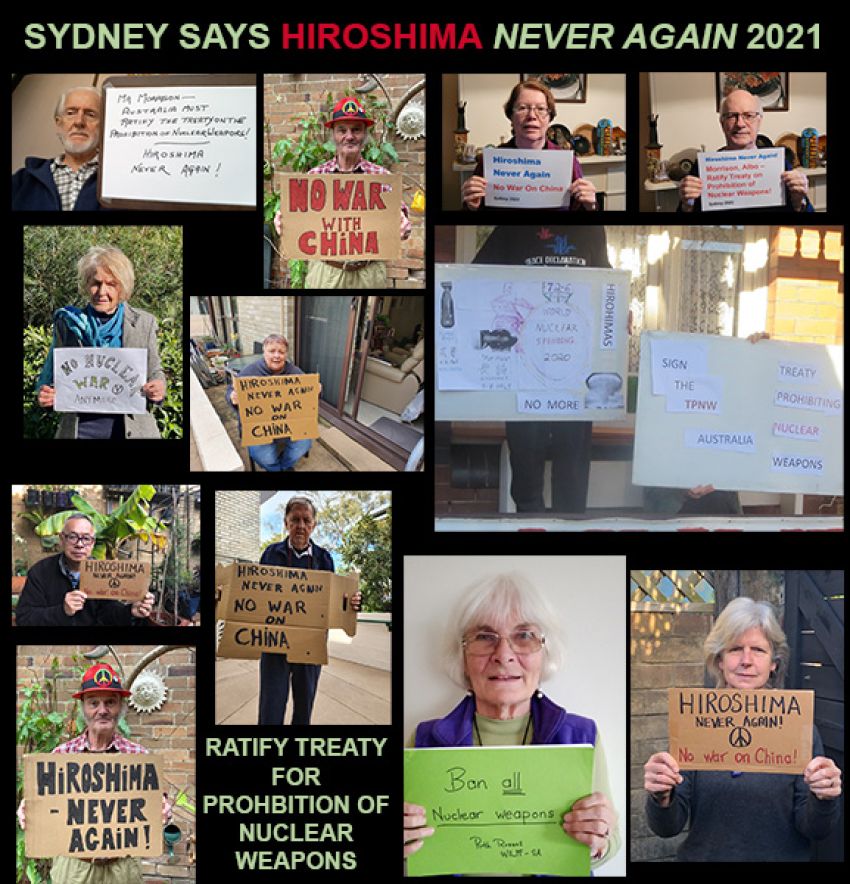
The Independent and Peaceful Australia Network (IPAN) and the Sydney Hiroshima Day Committee have called on the federal government to sign and ratify the Treaty on the Prohibition of Nuclear Weapons (TPNW) on the 76 year anniversary of the bombing of Hiroshima and Nagasaki in Japan.
It also wants the United States’ military bases to be shut down.
Seventy-six years ago on August 6, a US B-29 bomber dropped an atomic bomb on Hiroshima, Japan. Nearly 80,000 people were killed instantly. Three days later, Nagasaki was bombed, killing another 40,000 people.
The enduring and horrific damage of nuclear weapons should be enough to prevent their proliferation IPAN said. But the integration of nuclear arsenals into militaries has raised the threat of conventional conflicts turning nuclear.
IPAN spokesperson Annette Brownlie said the TPNW is “the best chance” we have to prevent the use of nuclear weapons.
“The Department of Foreign Affairs and Trade has said it have not signed this Treaty as it would be ‘inconsistent with our US alliance obligations’,” she said.
This is because the US military bases at Pine Gap and the North West Cape collect intelligence on nuclear targets.
They are also capable of detecting and destroying other countries’ weapons systems.
“Any alliance that requires the proliferation of nuclear weapons to survive is not one that prioritises [our] safety and best interests,” Brownlie said. Australia must follow the lead of New Zealand and sign the sign the TPNW.
“To perpetuate the threat of nuclear apocalypse for the sake of a few US military bases few Australians want is unconscionable.”
Hiroshima Day Committee chairperson Radhika Raju said in a letter sent to the Prime Minister and Opposition leader that the strength of the TPNW was its focus on nuclear weapons.
“A second strength is that it works,” she continued. “As with land mines, biological and chemical weapons’ treaties, signing them, first by less powerful countries, increasingly led to their eventual signing by the major powers, and thus freed the world of these harms.”
If Australia signed on, that would mean it also supported banning the manufacture, testing, threat and use of nuclear weapons.
The Australian-based International Campaign Against Nuclear Weapons won the Nobel Peace Prize for its work in promoting the TPNW.
“Accidental, terrorist, and other mishaps with nuclear weapons will be catastrophic, even if nations begin disarming.”
Last year, nine nuclear states spent $72.6 billion on increasing the nuclear industry stockpile. “This not only makes life more dangerous, it impoverishes it,” Raju concluded.